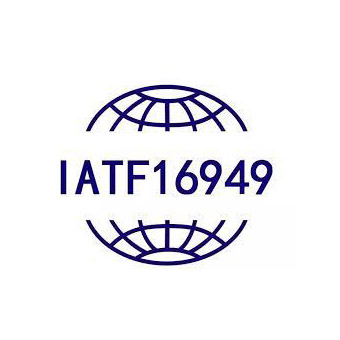Quality
Quality
Always attentive to its level of quality and to guarantee the highest standards of innovation, product and system, ATTI spa was able over time to reach goals always more innovative and certified. ATTI spa is certified according to the system of management for the quality of the Automotive sector, the technical specification UNI ISO/TS 16949, developed within the field of the IATF (International Automotive Task Force), and introduced a system for environmental quality management ISO 14001 based on surveillance, measurement and continuous monitoring of operations that could have significant impacts on the environment.


The Quality Policy
Our Quality Policy is aimed at giving effectiveness to the development program of its Quality Management System, with reference to the requirements of the IATF 16949: 2016 regulation, for the achievement of the planned improvement objectives and full customer satisfaction.
Priority goals for maintaining and improving accounts
nuo della qualità dei propri prodotti/ servizi e sono:
The responsibilities for implementing what is written in this document are delegated to the various function managers who took part in the review, in order to make them increasingly involved in what concerns the policies for improving company quality.
The management reviews and when it deems it appropriate updates the quality objectives annually. These are re-issued at each management review and require exposure to all staff. The personnel personally called upon to achieve the objectives is specified directly in the document concerning the objectives for the current year.
The management ensures that this document is known to all people who work for the organization or on behalf of it, and to all those who have relations with it.
ISO TS 16949 certified
The certification of the Quality Management System, specific for the Automotive sector, was born at the end of the 80s, by the will of the main European and American manufacturers.
In the 1990s, several proprietary third-party certification schemes (QS 9000, AVSQ 94, VDA 6.1 and EAQF) were consolidated, which “forced” evolved suppliers, who had relationships with multiple manufacturers, to have a large number of audits, in some respects similar but not the same.
In 1999 the publication of the ISO/TS 16949 technical specification made it possible to replace all the pre-existing quality standards in the Automotive sector, also constituting a moment of synthesis between all the main manufacturers at an international level, including Japanese manufacturers and their suppliers .
The UNI ISO/TS 16949 technical specification was developed within the framework of the IATF (International Automotive Task Force), an “ad hoc” group of car manufacturers and trade associations, set up to write and maintain the ISO/TS 16949 standard always updated and current.
The implementation of a quality management system according to the ISO/TS 16949 technical specification, in addition to significantly reducing the system audits to which a supplier had to undergo, enhances the process approach and pursues continuous improvement, not limiting itself to evaluation of effectiveness but with an emphasis on evaluating the efficiency of processes.
The Quality Management System, designed and implemented according to the UNI ISO/TS 16949 standard, allows to:
ISO 14001:2015 certification
ISO 14001 is an international standard of a voluntary nature applicable to all types of organizations, public and private, for the development of an effective certifiable Environmental Management System.
The development of an Environmental Management System, certified according to the UNI EN ISO 14001 standard, allows for the systemic management of the environmental aspects inherent in the processes, with a view to efficiency and improvement of environmental performance, allowing to obtain various advantages:


